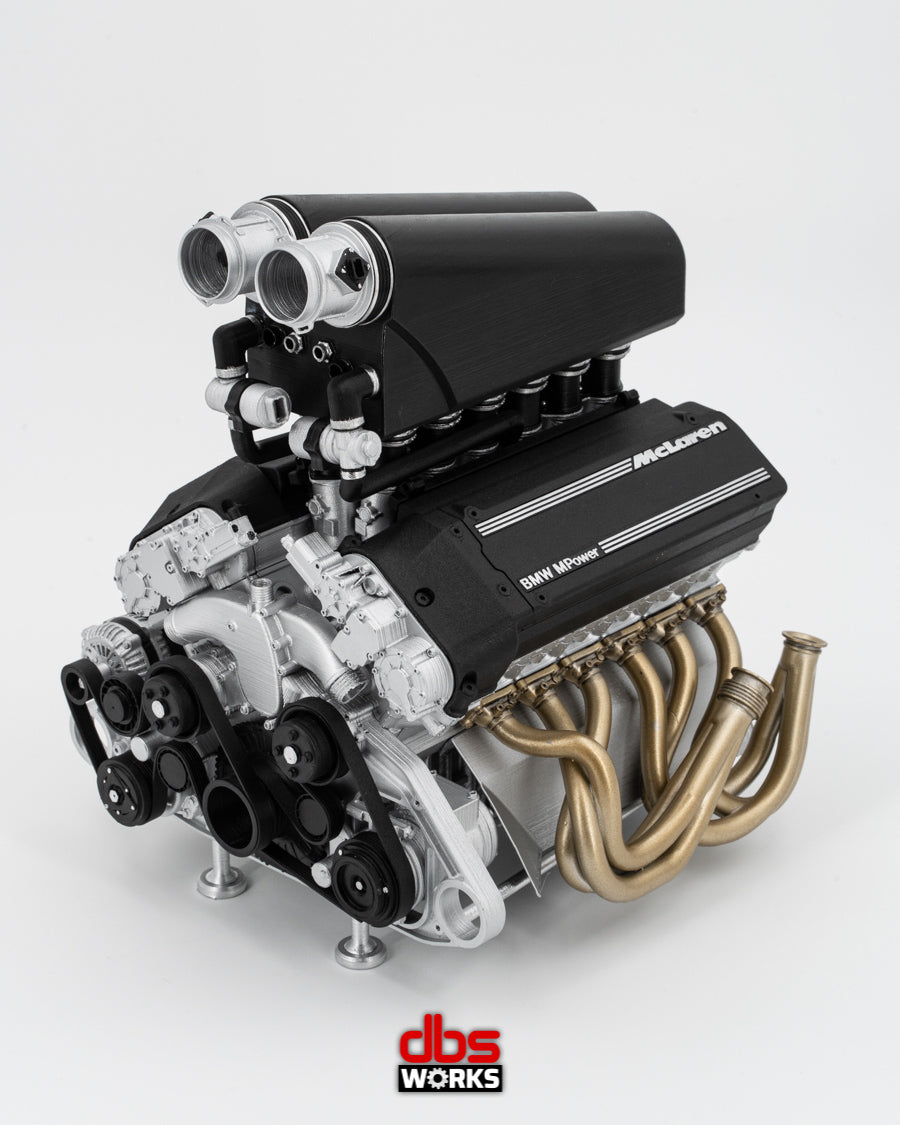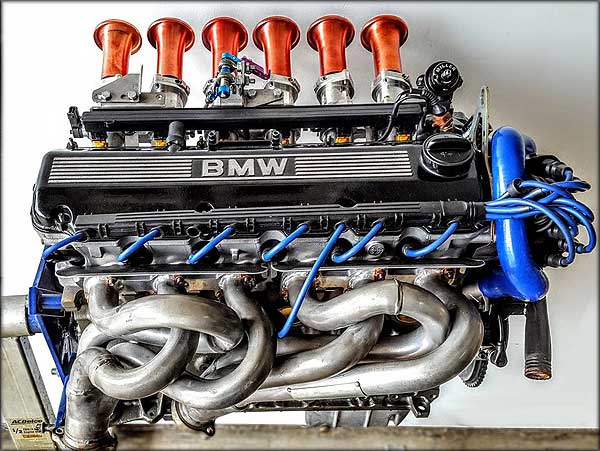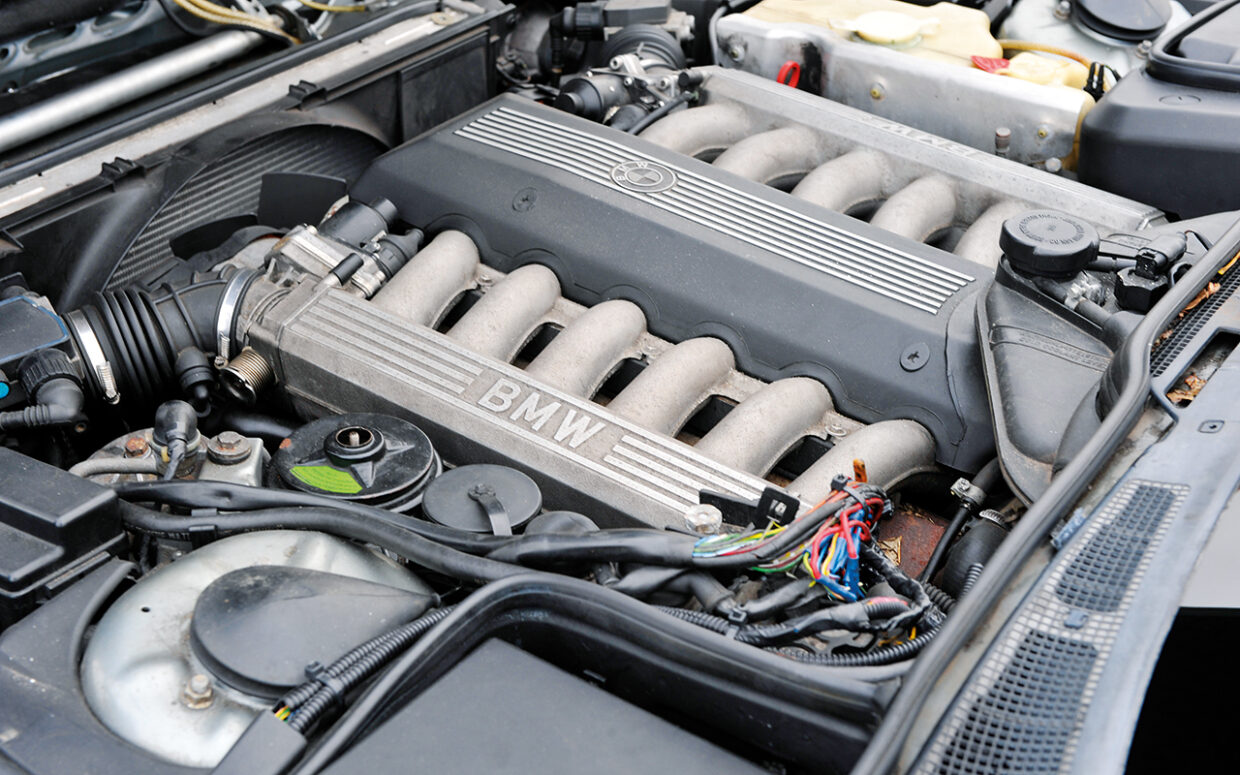A Beginner's Guide to Picking the Right BMW Engine for Your Demands
A Beginner's Guide to Picking the Right BMW Engine for Your Demands
Blog Article
Revealing the Intricacies of Next-Generation Power Units: a Deep Dive Into Advanced Engine Styles and Advancements
In the realm of automobile engineering, the relentless pursuit of efficiency, sustainability, and efficiency has actually driven the evolution of power units to unprecedented elevations. As we depend on the precipice of a brand-new age in transportation, the intricacies of next-generation engine designs beckon us to discover the sophisticated innovations and developments that promise to redefine the driving experience. From advanced products that push the borders of durability and weight decrease to advanced turbocharging and supercharging systems that boost power outcome to new degrees, each element of these power devices holds a crucial to unlocking the future of automotive design. Delving much deeper into the worlds of discharge control, smart engine administration systems, and the horizon of power system development, we locate ourselves on the cusp of an improvement that promises to improve the landscape of mobility as we understand it.
Evolution of Engine Products

The change in the direction of progressed engine products has actually additionally enabled engineers to develop engines with higher power outcomes while keeping gas performance standards. The usage of light-weight products minimizes the general weight of the engine, leading to enhanced gas economic climate and lower discharges. Furthermore, developments in materials technology have enabled better thermal management within engines, causing raised integrity and long life.
Turbocharging and Supercharging Technologies
Just How do Turbocharging and Supercharging Technologies reinvent engine performance and efficiency in modern-day cars? Turbo charging and turbocharging are innovations that considerably boost engine performance by increasing the quantity of air consumption into the combustion chamber. Turbocharging achieves this by utilizing a generator driven by exhaust gases to pressurize the consumption air, while supercharging makes use of a belt- or chain-driven compressor to accomplish the same result.
These technologies make it possible for smaller, more fuel-efficient engines to create power equivalent to bigger ones, known as downsizing. By requiring more air into the cyndrical tubes, turbocharging and supercharging improve burning efficiency, leading to increased horse power and torque result without a considerable rise in engine size. This brings about better velocity, towing capability, and total driving performance.
In addition, turbocharging and supercharging add to improved fuel performance by allowing the use of smaller sized engines that eat less fuel under typical driving problems - bmw engine. This mix of enhanced performance and effectiveness has actually made turbocharging and supercharging essential elements of several modern engine designs
Discharge Control and Environmental Effect
With raising global concerns relating to air top quality and ecological sustainability, the execution of emission control technologies in cars plays a critical role in decreasing damaging contaminants launched right into the environment. Modern lorries are outfitted with innovative exhaust control systems that aid minimize the environmental impact of automotive operations. Catalytic converters, for example, are designed to transform poisonous gases such as carbon monoxide gas, nitrogen oxides, and hydrocarbons right into much less unsafe materials like co2 and water vapor.
Moreover, advancements in engine technology, such as the assimilation of exhaust gas recirculation systems and careful catalytic decrease, have actually dramatically added to lowering emissions. These technologies operate in tandem to maximize combustion efficiency and minimize the launch of unsafe toxins into the air. Additionally, the growth of crossbreed and electric vehicles stands for a critical action towards reducing the total ecological footprint of the transportation field.
Intelligent Engine Administration Systems

In addition, these systems allow vehicles to satisfy stringent discharges standards without jeopardizing performance, supplying a more eco-friendly driving experience. The combination of artificial intelligence and equipment knowing capacities in engine management systems proceeds to press the limits of what is feasible, leading to additional renovations in effectiveness, dependability, and overall car performance. bmw engine. As automobile modern technology advancements, smart engine management systems will certainly play an essential function fit the future of transportation towards a much more efficient and sustainable instructions
Future Trends in Power Device Development
As smart engine administration systems pave the way for enhanced control and optimization in modern vehicles, future fads in power device growth are positioned to redefine the landscape of automobile propulsion innovations. These alternative power resources supply boosted effectiveness and performance while aligning with stringent ecological guidelines.
One more significant fad is the assimilation of sophisticated materials and making strategies. Lightweight materials such as carbon fiber and light weight aluminum are being used to decrease total automobile weight, improving fuel performance and performance. In addition, improvements in 3D printing and additive manufacturing are enabling the manufacturing of complex engine parts with higher precision and longevity.
Moreover, synthetic knowledge and artificial intelligence are playing a vital function in optimizing power unit efficiency. These modern technologies enable real-time tracking and flexible control, leading to extra reliable and trustworthy power shipment. Generally, future trends in power system advancement are geared in the direction of effectiveness, efficiency, and sustainability, driving the vehicle sector in the direction of a brand-new age of propulsion technologies.

Final Thought
To conclude, the improvements in engine products, turbocharging, emission control, and smart management systems have actually paved the method for next-generation power systems. These innovations have not just enhanced performance and effectiveness however additionally reduced environmental influence. As innovation remains to evolve, future patterns in power device advancement are most likely to focus on additional boosting sustainability and optimizing power result. Full Report The detailed styles and technologies in modern engines display the ongoing advancement of automobile technology.
Exploring the modern developments in engine products has been essential in boosting the performance and efficiency of contemporary engines. Over the years, the evolution of engine materials has actually played an essential role in pressing the borders of what engines can attain.The change in the direction of advanced engine materials has additionally allowed engineers to create engines with higher power outcomes while keeping fuel performance criteria.The application of intelligent engine administration systems in contemporary cars has actually revolutionized the means engines are managed and optimized for efficiency and performance. additional hints By accumulating data in real-time and examining it with sophisticated algorithms, intelligent engine monitoring systems can adapt to driving designs, environmental aspects, and engine wellness to optimize power outcome while reducing fuel usage and discharges.
Report this page